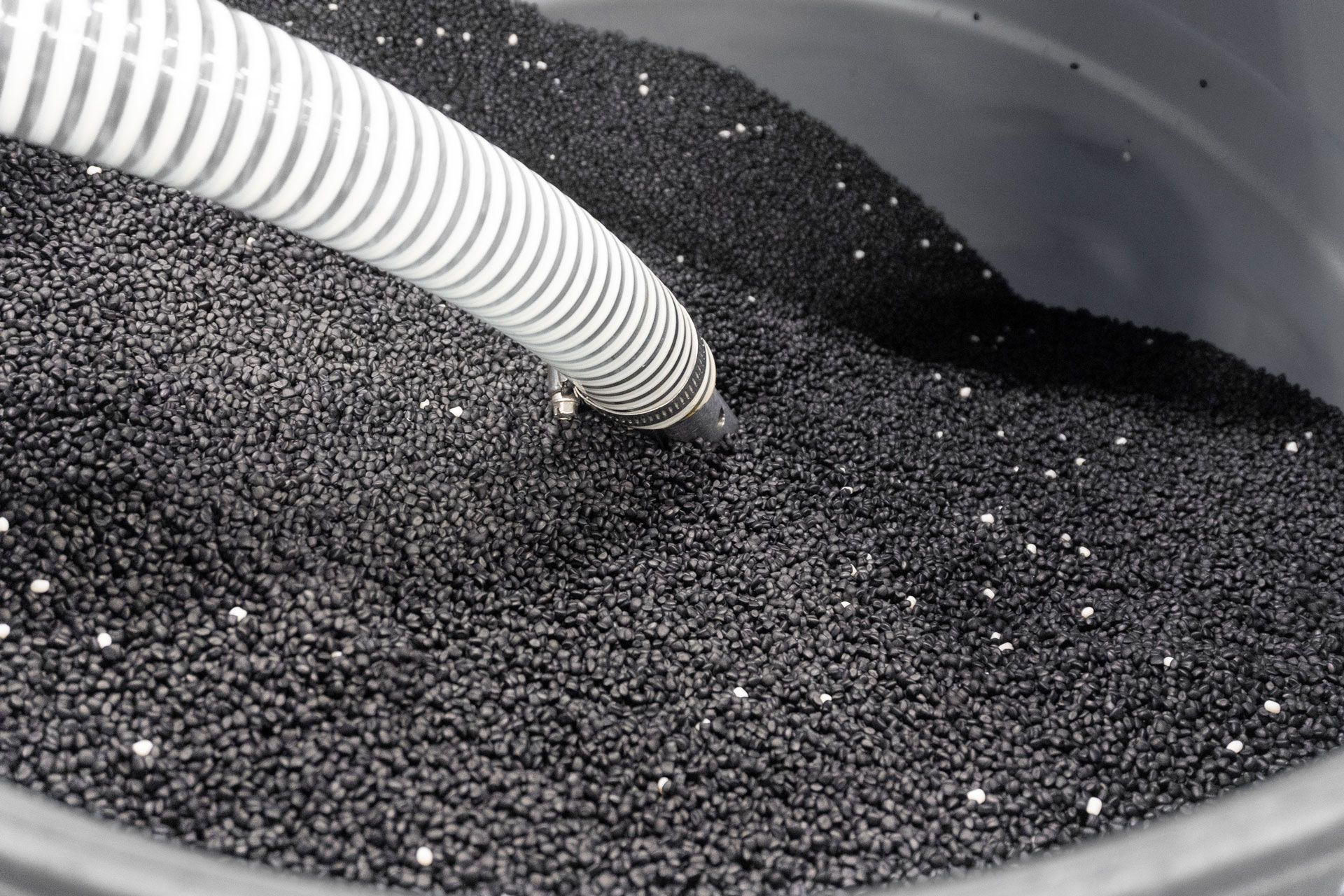What is TPV?
TPV is a type of thermoplastic elastomer made by dynamically vulcanizing rubber (typically EPDM) within a thermoplastic matrix like polypropylene (PP). This process blends the elasticity of rubber with the processability of plastic.
Key Properties
- Elasticity: Returns to its original shape after stretching or compression.
- Chemical Resistance: Withstands oils, acids, and bases.
- Weather Resistance: Performs well in fluctuating temperatures and outdoor conditions.
- Durability: Long service life with good wear resistance.
- Processability: Can be molded using standard thermoplastic techniques like injection molding and extrusion.
- Recyclability: Scrap material can often be reprocessed.
Advantages
- Combines rubber-like flexibility with plastic-like ease of processing.
- Reduces production time compared to traditional thermoset rubbers.
- Suitable for a wide range of applications: automotive seals, consumer goods, medical components, and construction materials.
- Lightweight and fuel-efficient in automotive use.
- Broad temperature range (-60°C to 135°C) and hardness options.
Disadvantages
- Generally more expensive than simpler TPEs.
- It may not match the extreme performance of fully cured rubbers in high-stress environments.
Requires careful formulation and processing to achieve optimal properties.
Applications
Automotive
TPV is widely used in the automotive sector due to its durability, flexibility, and resistance to weathering:
- Weather seals and gaskets
- Glass run channels
- Mudguards and exterior trim
- Dashboard covers and shift grips
- Airbag covers and interior components
Construction & Building Materials
Its resilience and ease of processing make TPV ideal for:
- Pipe seals
- Window and door profiles
- Expansion joints
- Roofing components
Consumer Goods
TPV’s soft-touch feel and chemical resistance are perfect for:
- Household appliance parts
- Grips and handles
- Flexible closures and seals
Electrical & Industrial
TPV offers excellent insulation and flexibility for:
- Cable jackets and wire insulation
- Tubing for fluid transfer
- Industrial seals and connectors
Sporting & Leisure
Its elasticity and comfort make it suitable for:
- Sporting equipment grips
- Footwear components
- Flexible gear parts














